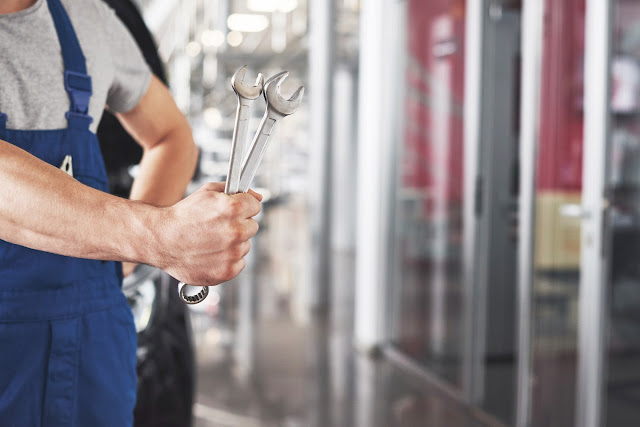Corded vs. Cordless Power Tools: Which One is Better for Stone Fabrication?
Power tools are the backbone of stone fabrication. Whether you’re cutting granite slabs, polishing marble surfaces, or drilling into quartzite, the choice between corded and cordless power tools can impact your speed, precision, and overall productivity. With so many variables in stone fabrication -like material density, tool endurance, and project scale -knowing which tool type to trust isn’t just helpful, it’s essential.
Stone fabricators, installers, and contractors often face this critical decision: Should you rely on the consistent power of corded tools, or embrace the flexibility of cordless options? The answer isn’t always black and white -it depends on the task, the tool, and the expectations of the job site.
Power That Lasts vs. Freedom That Moves
Corded tools are known for their uninterrupted power supply, making them the go-to choice for demanding jobs like deep coring or heavy grinding. They offer superior torque and runtime -perfect when cutting through thick stone with industrial-grade Cutting Tools & Blades in Dallas. On the other hand, cordless tools provide mobility, less clutter, and faster setup, allowing workers to maneuver easily on complex job sites or in tight installation spaces.
When Corded Tools Win:
- Extended cutting or grinding sessions
- Heavy-duty stone fabrication environments
- Precision polishing and shaping tasks that require stable power
- Indoor workshops with reliable power access
When Cordless Tools Shine:
- On-site installations with limited access to outlets
- Quick jobs or touch-ups
- Tasks requiring movement across large areas
- Reduced trip hazards from cords in high-traffic zones
Key Considerations in Stone Fabrication
Stone fabrication places unique demands on power tools that differ from other trades. The abrasiveness of materials like granite and quartz puts significant strain on blades and motors, meaning reliability is non-negotiable.
Durability: Corded tools often have longer lifespans due to robust construction and the absence of battery degradation. However, modern cordless systems are catching up with improved motor technology and long-life lithium-ion batteries.
Runtime: For long grinding and polishing jobs, corded tools maintain power without interruption. But newer cordless setups are integrating battery swaps and fast chargers to keep pace -especially useful when you’re using tools like Polishing Pads & Sandpaper in Dallas for detailed finishing work.
Torque and Speed Control: Corded power tools typically offer more torque, crucial when using Coring Tools & Accessories Near You to drill into dense materials. However, premium cordless options now include smart torque management, offering near-equal performance with less hassle.
Application-Based Tool Selection
Different phases of stone fabrication require different levels of power and portability. Knowing when to use each type of tool can maximize productivity and reduce downtime.
Cutting: When making long, clean cuts through granite or engineered stone, corded saws paired with the right Cutting Tools & Blades in Dallas deliver consistent performance and precision.
Polishing and Finishing: While corded polishers still dominate for deep shine and heavy buffing, cordless polishers are perfect for mobile touch-ups or smaller jobs where flexibility matters -especially when you’re applying a black wax bar for that final glossy finish.
Drilling and Coring: For installing anchors or drilling faucet holes, corded rotary hammers give full power, but lightweight cordless drills are ideal for fast-moving crews doing fieldwork with Coring Tools & Accessories Near You.
Handling Heavy Slabs: No matter which tool you use, pairing your power tools with the right material handling equipment in Dallas ensures safety and efficiency when moving stone pieces for cutting or polishing.
Making the Right Choice for Your Workflow
Ultimately, the better choice depends on how you work. For fabricators in high-volume shops, corded tools offer the power and endurance needed for continuous production. For installers working on-site or in client homes, cordless tools make the process smoother and faster.
Many professionals adopt a hybrid approach -using corded tools in the shop and cordless tools on-site. This gives the best of both worlds: stability where it counts and mobility where it matters.
Professionals across Texas are already upgrading their workflows by pairing the right power tools with dependable Cutting Tools & Blades in Dallas, specialized Polishing Pads & Sandpaper in Dallas, and quality material handling equipment in Dallas that supports safety without slowing down production.
Conclusion
In the world of stone fabrication, there’s no one-size-fits-all answer to the corded vs. cordless debate. Each has its strengths, and the smart choice is about aligning those strengths with your job demands. Whether you prioritize raw power or flexibility, your decision can significantly impact productivity, precision, and performance. Knowing when and where to use each type of tool can make all the difference -and with the right accessories and support systems in place, you’re always one step ahead.




Comments
Post a Comment